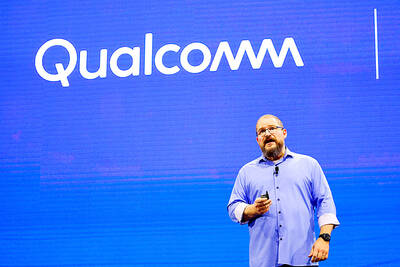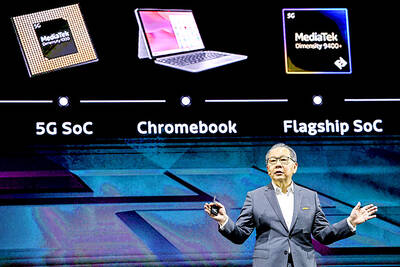Chunghwa Telecom Co (中華電信) and other local fixed-line service operators yesterday said they're not planning to increase rates for calls to China. Phone companies across the strait announced an eight-fold increase in international connection fees, effective yesterday.
On Wednesday, China's state-run China Telecom Co (中國電信) announced an increase in the connection fees of calls coming from Taiwan, Hong Kong and Macau into China. The fees will increase from US$0.02 (NT$0.69) per minute to US$0.17 (NT$5.9) per minute.
China Telecom's move has drawn anger from Taiwanese telecom operators, saying "it is absolutely a unilateral and unreasonable decision [by China Telecom]."
"Based on international business practices, any adjustment of connection fees should be approved by both sides [of the service arrangement]," said Chang Fen-hsiung (張豐雄), a vice president at Chunghwa. "Chunghwa definitely won't raise the international call rates to China in the short term."
Another telecom player, Sparq, also protested against the increase, saying they would unite with other local operators to negotiate with China Telecom about the rate hike.
"We are still trying to figure out the situation and the reaction of other carriers. I am sure we won't increase our rates within this month," said Kuo Ming-Chi (郭明琪), an executive with Sparq (速博).
Both Eastern Broadband Tele-com Co (
According to statistics provided by the Directorate General of Telecommunications, the airtime of Taiwan's outgoing calls to China was about 510 million minutes in 2001, about one-third of the nation's total outgoing international calls.
But heavy competition from telephone carriers has continuously brought call rates down over the last two years, and nowadays the discount rate for calls between Taiwan and China can be as low as NT$0.5 per minute.
James Jeng (鄭俊卿), an executive at Eastern Broadband said they would like to have Chunghwa telecom negotiated with China Telecom on behalf of local telecom carriers.
But Chunghwa's Cheng said his company isn't planning to make the move now. Instead, Chunghwa prefers to take a wait-and-see attitude toward the situation at this moment, Jeng said.
"As China Telecom's rate hike applies to all countries and all regions, we would like to see how US or Japan carriers respond to the situation first," Jeng pointed out.
Despite protesting against the rate increase, Hong Kong phone companies immediately passed the increased cost on to callers.
New World Telephone Co tripled its rate to China to HK$2.89 (NT$12.88) a minute.
Wharf New T&T Ltd increased charges as much as four times to HK$2.27 (NT$10.12) a minute and Zone Ltd, a long-distance reseller, increased tariffs as much as 40 times to HK$2.88 (NT$12.83) per minute.
But the timing of the increase has prompted speculation that China Telecom was intended to sweeten the share offer for its stock listing plan, said Nathan Lin (
"China Telecom's increase may come along with its initial public offering (IPO) plan in a bid to attract more investors," Lin said.
China Telecom, which plans to launch its dual listing in Hong Kong and New York, is scheduled to announce its pricing details next week.

Intel Corp yesterday reinforced its determination to strengthen its partnerships with Taiwan’s ecosystem partners including original-electronic-manufacturing (OEM) companies such as Hon Hai Precision Industry Co (鴻海精密) and chipmaker United Microelectronics Corp (UMC, 聯電). “Tonight marks a new beginning. We renew our new partnership with Taiwan ecosystem,” Intel new chief executive officer Tan Lip-bu (陳立武) said at a dinner with representatives from the company’s local partners, celebrating the 40th anniversary of the US chip giant’s presence in Taiwan. Tan took the reins at Intel six weeks ago aiming to reform the chipmaker and revive its past glory. This is the first time Tan

Qualcomm Inc is strengthening its partnerships with Taiwan Semiconductor Manufacturing Co (TSMC, 台積電) and original design manufacturers (ODMs) in Taiwan as it expands its presence in the artificial intelligence (AI) computer market, CEO Cristiano Amon said in Taipei yesterday ahead of the annual Computex trade show. “Historically we’ve always been a very big customer of TSMC, and we continue to be,” Amon said during a media Q&A session. “For chip manufacturing, we’re among the largest fabless [semiconductor designers],” he said, noting that Qualcomm, a leading provider of mobile and AI-enabled chipsets, ships about 40 billion components every year, with TSMC being

‘FAILED EXPORT CONTROLS’: Jensen Huang said that Washington should maximize the speed of AI diffusion, because not doing so would give competitors an advantage Nvidia Corp cofounder and chief executive officer Jensen Huang (黃仁勳) yesterday criticized the US government’s restrictions on exports of artificial intelligence (AI) chips to China, saying that the policy was a failure and would only spur China to accelerate AI development. The export controls gave China the spirit, motivation and government support to accelerate AI development, Huang told reporters at the Computex trade show in Taipei. The competition in China is already intense, given its strong software capabilities, extensive technology ecosystems and work efficiency, he said. “All in all, the export controls were a failure. The facts would suggest it,” he said. “The US

NEW PRODUCTS: MediaTek has been diversifying its product lines to minimize operational risks as mobile chips remain the company’s biggest revenue source MediaTek Inc (聯發科), the world’s biggest supplier of smartphone chips, yesterday said the tape-out process for its first 2-nanometer chip would take place in September, paving the way for volume production of its most advanced chip, likely to be its next-generation flagship smartphone chip, around the year-end at the earliest. MediaTek has been leveraging advanced process technologies from its foundry partner, Taiwan Semiconductor Manufacturing Co (TSMC, 台積電), to build its flagship mobile phone chips, a segment it once relinquished and then recovered four years ago as it released its Dimensity series. In the semiconductor industry, a tape-out refers to the